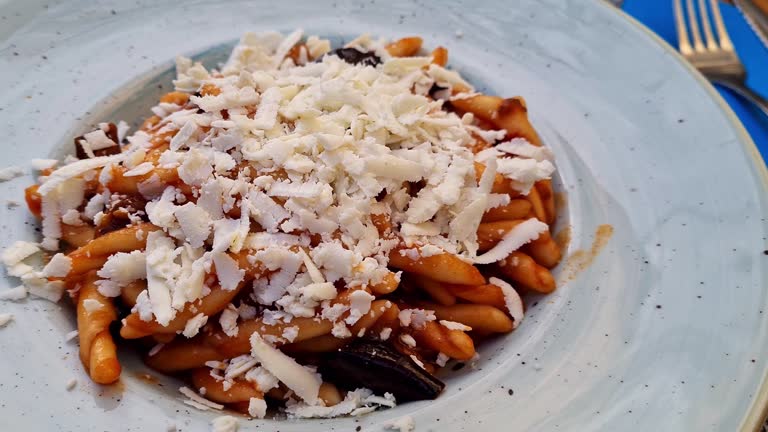Vegan diets have been gaining popularity, not just for their ethical and environmental benefits, but also for their creativity in replicating classic dishes. One of the most common challenges vegans face is finding alternatives to cheese, particularly Parmesan, which adds that sharp, savory flavor to various dishes. Luckily, vegan Parmesan cheese offers a plant-based alternative without compromising on taste.
In this blog, we will explore everything you need to know about vegan Parmesan cheese: its ingredients, how to make it at home, its nutritional benefits, and where to buy the best ready-made versions. By the end, you’ll have a thorough understanding of this dairy-free alternative and how it can fit perfectly into your vegan lifestyle.
What is Vegan Parmesan Cheese?

Vegan Parmesan cheese is a plant-based version of the traditional Italian cheese that is typically made from cow’s milk. It’s designed to mimic the texture, taste, and savory qualities of Parmesan, but without the use of dairy. Whether you are lactose intolerant, follow a plant-based diet, or simply want to cut back on animal products, vegan Parmesan is an excellent substitute for its traditional counterpart.
Ingredients in Vegan Parmesan Cheese

Vegan Parmesan cheese can be made from a variety of ingredients, most commonly:
- Nutritional Yeast: This is the star ingredient in many vegan Parmesan recipes. It has a cheesy, nutty flavor that replicates the taste of real Parmesan. Plus, it’s loaded with B vitamins, including B12, which is essential for vegans.
- Nuts and Seeds: Cashews, almonds, and sunflower seeds are frequently used because they provide a creamy, rich base. These nuts are ground into a fine powder to mimic the texture of grated Parmesan.
- Garlic Powder: For an added burst of flavor, garlic powder is often included. It enhances the savory taste of vegan Parmesan.
- Salt: To bring out the cheesy flavor, a bit of salt is added to balance the other ingredients.
- Optional Ingredients: Some recipes may include miso paste, lemon juice, or other seasonings to fine-tune the flavor to your liking.
Health Benefits of Vegan Parmesan Cheese

Vegan Parmesan isn’t just a delicious alternative; it’s also packed with health benefits. Here’s why you might want to consider adding it to your diet:
1. Lower in Fat
Traditional Parmesan cheese is rich in saturated fats, which can contribute to heart disease if consumed in large quantities. Vegan Parmesan, especially when made with nuts or seeds, contains healthy unsaturated fats, which are beneficial for heart health.
2. Dairy-Free and Lactose-Free
For those who are lactose intolerant or have a dairy allergy, vegan Parmesan is a safe and tasty alternative. You can enjoy all the cheesy goodness without the risk of digestive discomfort or allergic reactions.
3. Rich in B Vitamins
Thanks to nutritional yeast, many vegan Parmesan cheeses are fortified with essential B vitamins, including vitamin B12, which is often lacking in plant-based diets.
4. High in Protein
If your vegan Parmesan is made with nuts or seeds, it provides a decent amount of plant-based protein. Cashews, almonds, and sunflower seeds are all excellent sources of protein, helping you meet your daily intake.
5. Good Source of Fiber
Nuts and seeds also provide fiber, which supports digestive health. Fiber helps regulate blood sugar, keeps you full longer, and promotes healthy digestion.
How to Make Vegan Parmesan Cheese at Home

Making your own vegan Parmesan cheese at home is incredibly easy and requires just a few ingredients. Here’s a simple recipe that you can whip up in under five minutes.
Ingredients:
- 1 cup raw cashews (or almonds, or a mix of both)
- 4 tablespoons nutritional yeast
- 1 teaspoon garlic powder
- 1 teaspoon salt
Instructions:
- Prepare the Nuts: If using cashews or almonds, ensure they are raw and unsalted. You can also use sunflower seeds as an alternative.
- Blend Ingredients: In a food processor or high-speed blender, combine the nuts, nutritional yeast, garlic powder, and salt. Pulse until you achieve a fine, crumbly texture that resembles grated Parmesan cheese.
- Store and Use: Transfer your vegan Parmesan to an airtight container and store it in the refrigerator. It will keep fresh for up to two weeks.
Use it as a topping for pasta, pizza, salads, or even popcorn for a savory twist.
Popular Brands of Vegan Parmesan Cheese

If you’re not in the mood to make your own, there are plenty of store-bought vegan Parmesan options available. Here are some of the top-rated brands:
1. Follow Your Heart Parmesan-Style Shredded Cheese
This brand is a favorite among vegans for its ability to melt, making it perfect for baked dishes. It’s free from dairy, soy, and gluten, making it suitable for those with multiple dietary restrictions.
2. Go Veggie Vegan Parmesan Grated Topping
Go Veggie’s grated topping is well-known for its realistic flavor and crumbly texture, making it an ideal option for sprinkling over pastas and salads. It’s also fortified with calcium, providing a good source of nutrients.
3. Violife Just Like Parmesan
Violife’s Parmesan alternative has a hard texture similar to traditional Parmesan and can be grated just like the real thing. It’s also free from common allergens, including dairy, nuts, and soy.
4. Parmela Creamery Aged Nut Cheese
This brand uses cultured nuts to create a rich, tangy flavor similar to traditional aged Parmesan. Parmela Creamery’s cheese is perfect for those who want an artisan approach to vegan cheese.
How to Use Vegan Parmesan Cheese

Vegan Parmesan can be used just like the dairy-based version in a wide range of recipes. Here are some ideas for how to incorporate it into your meals:
- Pasta Dishes: Sprinkle vegan Parmesan on top of spaghetti, lasagna, or any pasta dish for added flavor.
- Salads: Add a generous sprinkle to Caesar or Mediterranean salads for a cheesy kick.
- Pizza: Top your homemade or store-bought pizza with vegan Parmesan for an extra layer of savory flavor.
- Soups: Use it as a topping for creamy soups like tomato bisque or minestrone.
- Vegetables: Roasted veggies like broccoli, cauliflower, or Brussels sprouts can benefit from a dusting of vegan Parmesan.
- Popcorn: For a fun and savory snack, toss freshly popped popcorn with vegan Parmesan and a bit of olive oil.
Nutritional Comparison: Vegan Parmesan vs. Traditional Parmesan

To understand the health benefits of vegan Parmesan better, it helps to compare its nutritional content with traditional Parmesan cheese. Here’s a quick breakdown:
| Nutrient | Traditional Parmesan (1 tbsp) | Vegan Parmesan (1 tbsp) |
| Calories | 20 | 30 |
| Total Fat | 1.4g | 2.5g |
| Saturated Fat | 1g | 0.3g |
| Protein | 1.9g | 1g |
| Sodium | 76mg | 90mg |
| Fiber | 0g | 0.5g |
| Vitamin B12 | 0mcg | 1.5mcg |
As the table shows, vegan Parmesan tends to be higher in fiber and B vitamins while being lower in saturated fat compared to traditional Parmesan.
Is Vegan Parmesan Cheese Suitable for Everyone?
While vegan Parmesan cheese is a great option for many people, there are some considerations to keep in mind:
- Nut Allergies: Many vegan Parmesan recipes and products contain nuts, which can be an issue for individuals with nut allergies. In these cases, look for nut-free options made with seeds or other ingredients.
- Nutritional Content: While vegan Parmesan is typically lower in calories and saturated fat, it’s important to check labels for added preservatives or high sodium levels in store-bought versions.
- Taste Preference: Vegan Parmesan mimics the taste of traditional Parmesan, but the flavor may still differ slightly depending on the ingredients used. However, many people find the flavor to be quite similar and enjoyable.
Conclusion
Vegan Parmesan cheese is a versatile, delicious, and healthier alternative to traditional dairy-based Parmesan. Whether you’re looking for a homemade recipe or prefer store-bought versions, this dairy-free option offers all the cheesy flavor without the ethical or dietary concerns tied to animal products. With its rich nutrient profile, including B vitamins, fiber, and healthy fats, vegan Parmesan can easily fit into a balanced and health-conscious diet.




